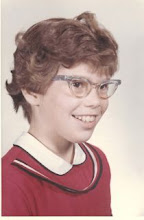Please help me welcome today's guest blogger, Julee Murphy, a teacher-librarian at the Early Childhood Development Center, a dual language elementary-middle school, and an Education Specialist at Texas A&M University-Corpus Christi. She actively advocates for literacy in her community through early reading intervention programs and is a member of many professional organizations that support reading. Julee believes readers come in all ages and anyone can develop into a reader at any point in their lives. Her hobbies include reading, using technology tools to engage her students, performing science experiments at home, and entertaining her grandbabies. You can hear more from Julee by visiting her on Twitter or her blog.
How Book Clubs Inspire Conversation, Community and Creativity
Children are not always sure how to select books or how to discover topics that might interest them. Implementing a Book Club can be an engaging way to inspire disinterested or reluctant readers to become involved readers while providing opportunities for advanced readers to discover new topics of interest.
The Bluebonnet Book Club (BBC) is a yearlong program that I started in my school that features twenty books nominated for the Texas Bluebonnet Award. The titles are a good mix of fiction, non-fiction, graphic novels, and poetry. Third through sixth grade students are challenged to read at least five nominated titles before January 31st of each year, to become eligible, along with other students across Texas, to electronically vote for their favorite title. In addition, I further challenge students to read eight or more titles and complete five book projects. If successful, they receive a coveted invitation to a celebratory BBC Breakfast filled with food, crafts, and games. Students work hard to earn this privilege.
The result of our Bluebonnet Book Club is that it promotes conversation, community, and creativity. Reading a book aloud or along with others and taking time to discuss its characters, plot, and backstory lead to rich literary conversations. Students have become inspired to read beyond the book by further researching its topics. So was the case with two books in particular.
Just Being Audrey by Margaret Cardillo inspired students to research Audrey Hepburn’s life, learning how she struggled with hunger during World War II in Nazi-occupied Netherlands and concluding that her true life experiences led to her dedicated efforts as a UNICEF ambassador bringing attention to child hunger. Students were so touched by Hepburn’s efforts that they collected money for UNICEF. As a teacher, it is very rewarding to see students take their learning and turn it into a positive change to better their community. Readers also demonstrated their creativity by highlighting Hepburn’s life and career in this example of a book project.

The most popular BBC lesson was All Stations! Distress! by Don Brown. Our lesson began by assigning each student the name of an actual passenger or crew member aboard the Titanic. After reading the book together and learning about Titanic's timeline from the building of the ship, to its voyage and eventual sinking, students used primary source passenger manifests to research and discover their fate that tragic night at sea. Students were curious and wanted to understand the passenger class system. They were distressed that so few lifeboats were available and those who had survived became interested in what happened to their assigned passenger later in life. Those who were lost at sea learned about body reclamation. In subsequent lessons, we learned how to use and translate Morse code and concluded by learning about the search for Titanic and its eventual discovery by explorer Bob Ballard. I provided readers with books on marine biology and oceanography and information on how they could pursue a career in these fields.
Bluebonnet Book Club wikipage: All Stations! Distress!
Through our book club, readers are discovering new interests and are sharing these with their peers. Many continue to select books to read together in their own version of mini book clubs. They have become a community of readers with important opinions and ideas to share.
Thank you Julee for sharing your experiences with us! I am so impressed with your students' generosity, as well as your resourcefulness in stretching the story far beyond the page.



Julee, reading what you do with things like book clubs is so inspirational and for me, since I'm not a teacher or librarian, a reaffirmation that there are people like you with such heartfelt passion for nurturing the love of reading in children, and enriching their lives in this way, along with education them on things that relate to their own lives, like possible occupations. It's truly uplifting.
ReplyDeleteThanks for sharing, Julee, and thank you, Kirby, for hosting Julee :)